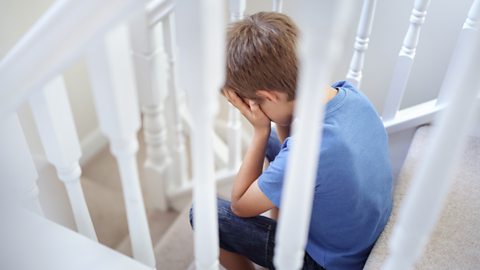In a ТщЖЙдМХФ Three documentary - Roman Kemp: The Fight for Young Lives - the radio DJ and TV personality meets families whose lives have been devastated after their child took their own life. He also talks to Child and Adolescent Mental Health Services (CAMHS) and schools to see what support they can offer young people.
To accompany this documentary, Roman has made this exclusive film for Parents' Toolkit, sharing his own experience of poor mental health at school, what the signs were and how Roman and his parents approached difficult conversationsтІ
Roman I guess the first signs that I was struggling were not speaking to my parents as much you know I kind of felt like I was, I felt like someone had unplugged me from the fun circuit and I felt like I wanted to have fun but I couldnтt, and I felt like I would wake up and there would be this kind of grey cloud above me.
TITLE: Roman Kemp: My mental health at school
Roman When I was an early teenager was the first time I ever started to experience anxiety, it was always that moment of waking up in the morning worried about what the day was going to be like, even if it was going to be a great day having that feeling of, of worry and doubt I guess was the main thing that I started to realise and that was pretty early on as I say, early teens.
What are the signs?
Roman My poor mental health when I was young I think would manifest itself by you know me not wanting to talk to many people, me not wanting to go to you know parties, or going round a friends house, most of the time it was because when I would come home from school, I wouldnтt even want to talk to my family and I felt like I just wanted to go and do my own thing, I wanted to get away I didnтt want people to ask questions.
How can I start a mental health chat?
Roman Starting one is really difficult, I would say going for a walk, going in the car, any activity that doesnтt require face to face conversation is really brilliant, my mum always used to do it with me she would sit me in the car and that would be where weтd have difficult chats. Eye contact just makes things so much more awkward and sometimes you can focus on what youтre saying a little bit more when youтre not looking at someone.
Are you any better at dealing with these issues now?
Roman I certainly feel better equipped now as an adult to deal with you know difficulties in life but thatтs because you go through them. The only way that you become better at dealing with the things is after youтve unfortunately gone through it.
What would you say to young people who are struggling?
Roman Keep going, just keep going. Thereтs so much out there that can happen and that can change so quickly for the better and life can change so fast and that idea that if it feels like itтs not worth living anymore really can change. The best thing to do is talk and the more you normalise that with your friends and you have those conversations to realise that youтre not alone. Sometimes thatтs all you need. You just need that one person that you can talk to about it to instantly relieve that pressure.
It can sometimes feel uncomfortable or overwhelming to address your own childтs mental health, but talking about it is the first step. ТщЖЙдМХФ Bitesize Parents' Toolkit has tips and advice from three experts - to help you support your childтs positive mental wellbeing.

How do I talk to my child about their mental health?
тA good tip from me is think about тright time, right place, right pace.т - Dr Beth Mosley
Dr Beth Mosley is a consultant clinical psychologist who works with young people. She suggests choosing an appropriate time for you and your child to talk, and in a suitable place where you wonтt be interrupted. Roman Kemp suggests car journeys or when youтre doing an activity together, as it can be less intense when youтre not making eye contact.
Itтs also really important to listen without judging. Dr Mosley advises being тcurious and kindт. Often young people worry theyтre going to be told off for struggling with their feelings, so make sure your child feels understood and cared for, and thank them for opening up to you.
Watch this film with Dr Beth and school mental health lead Kerry Whitehouse to find out moreтІ
Mental health in school: Expert advice for parents
Dr Beth We know that young peopleтs mental health difficulties are on the rise. Thereтs been a 60% increase in young people being diagnosed with a mental health difficulty in the last few years..What can I look out for as a parent?
Kerry I think advice for parents is that if a child is struggling that could look different in every young person some students and some children may withdraw others may act out thereтs no one size fits all so I think itтs just about being aware of any changes in behaviour and looking at whether that is an unmet need, whether thereтs something a little bit deeper thatтs going on.
How can I approach difficult conversations?
Dr Beth If you think your child is struggling a good tip from me is think about right time right place right pace for conversations. So choose a good time for you and a good time for your child where youтre going to have enough uninterrupted time to talk together, think about the place youтre going to do this so that itтs going to be uninterrupted by others and do it at the right pace so be curious and kind. Young people will be better able to open up about their feelings if we get really good at listening. Learning to listen is an important skill it means taking the time to make sure that people feel understood and cared for. Not judged or criticised a lot of young people I work with worry about being told off for struggling with their feelings making sure you as a parent thank your child for sharing whatтs being so hard and give them the love and care they need will help them open up again and again.
At what age should I talk to my child about mental health?
Kerry Education around mental health should be started as early as possible I think as soon as children start to recognise emotions and understanding what emotions are how that feels, how that might look in terms of the physicality of emotions that theyтre feeling I think is crucial for young people to be able to articulate how theyтre feeling.
When and where can i get support?
Dr Beth It can be really scary as a parent when youтre worried about your child a really good placed to turn is school. School often know whatтs going on for your child in that environment and they can provide really good advice and guidance about what local organisations could potentially provide support for your child. As well as perhaps what they can do at school to help your child.
Kerry I think for young people to open up to engage more to engage more young people in the conversation obviously education is crucial. I think that early intervention is also essential, not waiting till young people reach crisis point before they seek support and anything that can be done really just to challenge the stigma and normalise conversation.
Parents' Toolkit has more advice for parents with these four steps for chatting to your child about their mental health.

At what age should you start conversations about mental health?
Kerry Whitehouse is the Senior Mental Health Lead at a school in the Midlands, and features in the documentary. She believes education around mental health should start as early as possible,тAs soon as children start to recognise emotions.т
Describe to your child what they might be feeling when theyтre angry, upset or excited, and explain that all these emotions are part of being human.
Helping your child to understand what emotions are, how they feel and the physical signs of those emotions, will help them to articulate how theyтre feeling as they grow up.
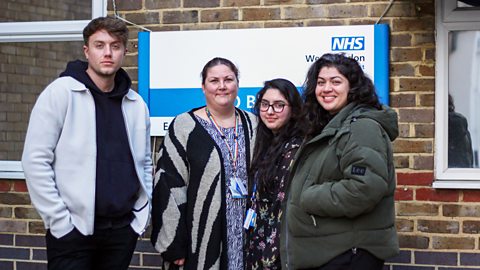
How do I promote positive mental health in my child?
"Encourage responsibility and self-reflection, praise effort and encourage learning through failure.т - Dr Krause
Dr Nihara Krause is a consultant clinical psychologist and founder of youth mental health charity stem4. She says: тPromoting positive mental health is a developmental process that starts from birth onwards.т
From day one, all children need the basics: feeling secure and loved through family connections, consistent care, predictable routines and being listened to. Keep talking to your child and find out whatтs going on in their world.
In addition, Dr Krause suggests providing тopportunities to develop [your childтs] confidence in themselves and to explore. Encourage responsibility and self-reflection, praise effort and encourage learning through failure.т
You could also follow Dr Krauseтs MINDYOUR5 model, which focuses on five categories for boosting childrenтs wellbeing. Just think 'HAPPY'тІ
H - Healthy practice
Physical health and self-care are vital for good mental health. тThis includes getting adequate sleep, eating healthily, regular mealtimes, and getting daily exercise т this can be as simple as a 30-minute walk, a jog in the park or a ball game."
Learn more about how to get a good night's sleep
A - Activity
тGive your young person the opportunity to do things they enjoy that they can feel a sense of mastery in.т This could be hobbies like baking, sewing, learning an instrument, playing a sport or a whole host of other activities!
Some activities you could do with your child
P - Positive thinking
тTeaching the fundamentals of thinking positively and a healthy mindset is critical to good mental health. A young personтs interpretation of a situation will determine its outcome.
тIf their perspective is negative, the outcome of their thinking will be negative. Help set some small but achievable goals and give feedback every time they achieve one small step at a time. Catch the worst-case scenario thinking in yourself as well as in them. Help them to see the bigger picture in a negative situation and the potential positives, rather than only focusing on negatives.т
P - Positive emotions
As Kerry says, being able to identify emotions, learning to express and manage them is essential to developing positive mental health. тListen to your young personтs fears and worries. Help them to express what theyтre feeling and reassure them you care and will support them.т
Y - Your connections
Making and maintaining healthy relationships is important. тIf theyтre past playdates, encourage your young person to set up group activities т they donтt have to cost money. If it involves online activities, keep to agreed boundaries. Help them to learn social confidence through helping them to learn to trust themselves to solve problems. Reinforce the good decisions they make.т
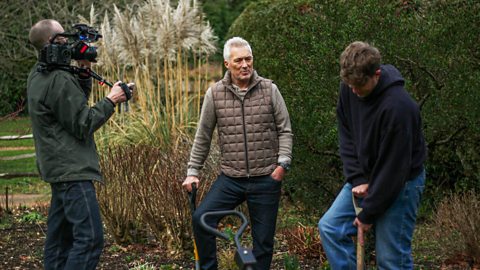
What should I do if my child is struggling?
Senior Mental Health Lead Kerry Whitehouse says every child will be different but look out for signs like your child withdrawing or acting out. Ask yourself whether a change in behaviour could be a more basic need thatтs not being met, or whether thereтs something deeper going on.
Dr Mosley says if youтre worried about your childтs mental health, speak to their school, as they will know more about whatтs happening in that part of your childтs life, and offer advice on services that are available locally.
Watch Roman Kemp: The Fight for Young Lives on iPlayer.

For further advice, ТщЖЙдМХФ Bitesize Parentтs Toolkit has a range of resources available on wellbeing ОБВдГІБєГмЛхОБВдВЕтІ
Ways to talk to your child about their mental health
How to build a mental health support network
Techniques for managing anxiety
Tips for encouraging resilience in your child
What is CAMHS and how can I get a CAMHS referral for my child?

For more help, the ТщЖЙдМХФ Action Line has links to organisations offering support and information.
is a charity that provides mental health information and advice to young people, and parents and carers.
offers support and advice for children and teens with helplines and messageboards.
has support for under 25s including a 1-2-1 chat service.
The NHS has of children or teenagers with mental health problems.

More from ТщЖЙдМХФ Bitesize Parents' ToolkitтІ
Parents' Toolkit
Fun activities, real-life stories, wellbeing support and loads of helpful advice - we're here for you and your child.

How to tackle anxiety with Dr Anna Colton
Dr Anna has made seven short films with easy to learn techniques.
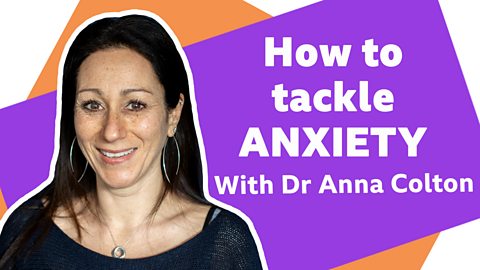
Mental health first aid kit for parents: Who to ask and what to do
Worried that your child needs help with their mental health? Here's how you can access professional help and support your child while you wait.
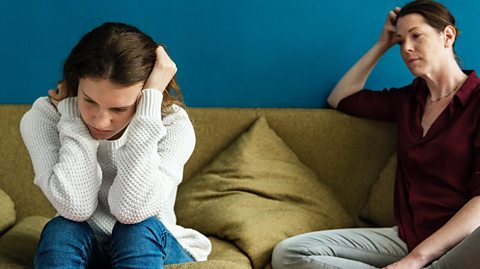
Joe Wicks wants parents to talk about their mental health - here's how you can do it
Known for getting the country moving, Joe has a new goal - to help parents be more open with their children about their struggles.
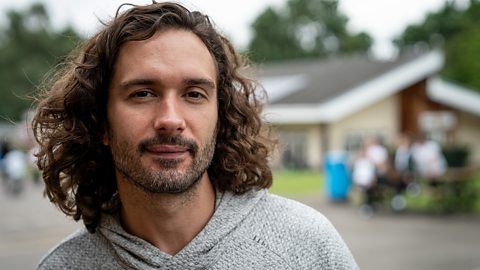
Dr Ranj: How I overcame mental health stigma and got support
An article by Dr Ranj Singh on stigma and child mental health - how to have difficult conversations and where to go for help.
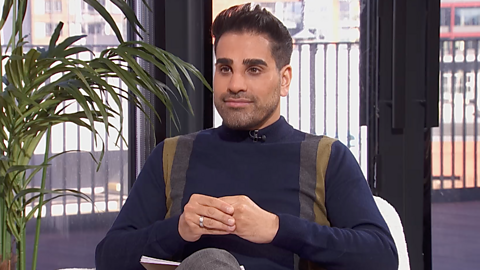
Five tips to support the after-school тmeltdownт
Expert advice on how to cope with after-school restraint collapse as a parent.
